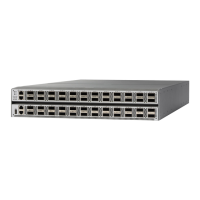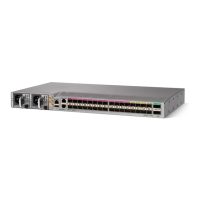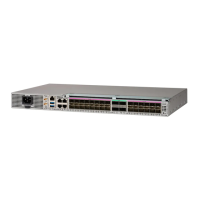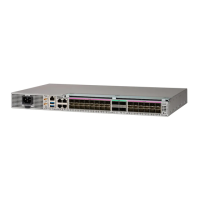CHAPTER 6
Implementing Static Routes
Static routes are user-defined routes that cause packets moving between a source and a destination to take a
specified path. Static routes can be important if the software cannot build a route to a particular destination.
They are useful for specifying a gateway of last resort to which all unroutable packets are sent.
References for Static Routes, on page 200 provides additional conceptual information on static routes.
Currently, only default VRF is supported. VPNv4, VPNv6 and VPN routing and forwarding (VRF) address
families will be supported in a future release.
Note
This module describes how to implement static routes.
• Restrictions for Implementing Static Routes, on page 191
• Configure Static Route, on page 192
• Floating Static Routes , on page 193
• Configure Static Routes Between PE-CE Routers, on page 195
• IPv4 Multicast Static Routes, on page 196
• Default VRF, on page 198
• Configure Native UCMP for Static Routing, on page 199
• References for Static Routes, on page 200
Restrictions for Implementing Static Routes
These restrictions apply while implementing Static Routes:
• Currently, only default VRF is supported. L3VPN, VPNv4, VPNv6 and VPN routing and forwarding
(VRF) address families will be supported in a future release.
• Static routing to an indirect next hop, (any prefix learnt through the RIB and may be more specific over
the AIB), that is part of a local subnet requires configuring static routes in the global table indicating the
egress interfaces as next hop. To avoid forward drop, configure static routes in the global table indicating
the next-hop IP address to be the next hop.
• Generally, a route is learnt from the AIB in the global table and is installed in the FIB. However, this
behavior will not be replicated to leaked prefixes. This could lead to inconsistencies in forwarding
behavior.
Routing Configuration Guide for Cisco NCS 5500 Series Routers, IOS XR Release 6.3.x
191
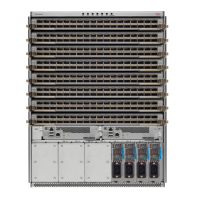
